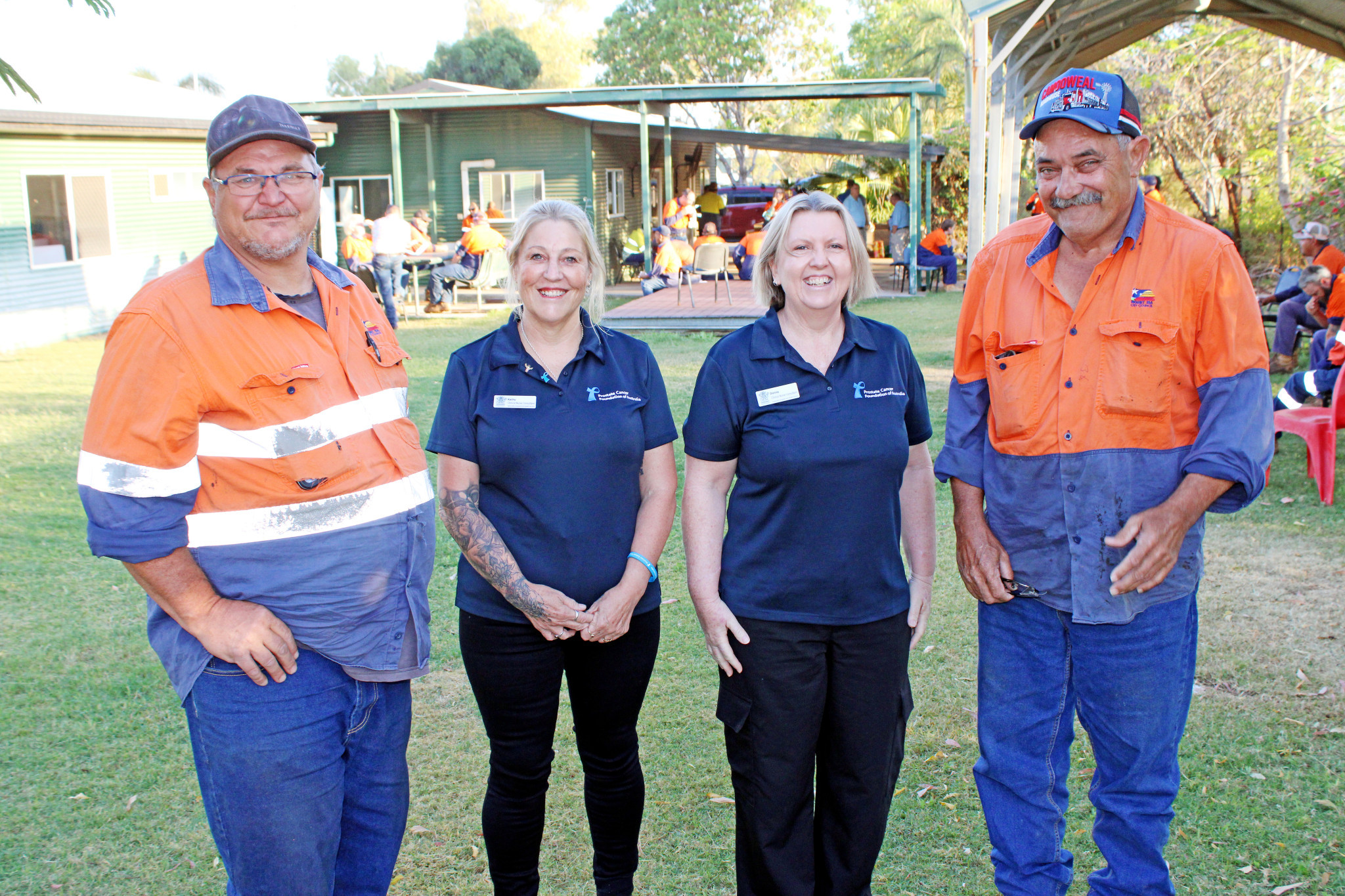Community
7 October, 2024
Prostate nurses spread the message in Mount Isa
The nurses took the message directly to men at key locations in the city last week.

It's an uncomfortable subject for most men, but the NWQ Prostate Cancer Support Group has attempted to bridge the misunderstanding and misinformation surrounding detection of the illness through hosting two specialist nurses in Mount Isa last week.
The nurses took the message directly to men – holding information sessions at the Mount Isa City Council works depot, Mount Isa Mines and the Irish Club where they encouraged men to speak to their doctor about a PSA blood test to monitor for the illness.
Townsville Cancer Centre specialist prostate cancer nurse Donna Thorogood said men in the North West often delayed getting regular health checks, which meant prostate cancer was being diagnosed at a more advanced stage compared to the national average.
With 96 per cent of patients surviving five years after diagnosis, she said early detection was key to tackling the illness.
“I don’t think a lot of people realise there are specialist nurses for prostate cancer,” she explained.
“Men don’t like talking about any issues below the waist, but we are here to let men know it is just a simple blood test.
“Men over 50 should be talking to their doctor about a blood test and men over 40 who have a family history of prostate cancer should also be having that conversation.”
MICC truck driver Marco Bracchi said he was spurred to start taking regular blood tests to monitor his PSA levels after his brother was diagnosed with prostate cancer about six years ago.
He said his brother now sees a doctor from his home in Brisbane.
Mr Bracchi said anyone with a family history was at risk.
“It’s a good thing the nurses are coming and talking here,” he said.
“It isn’t something that people think about, it is good they are getting some information out there.”